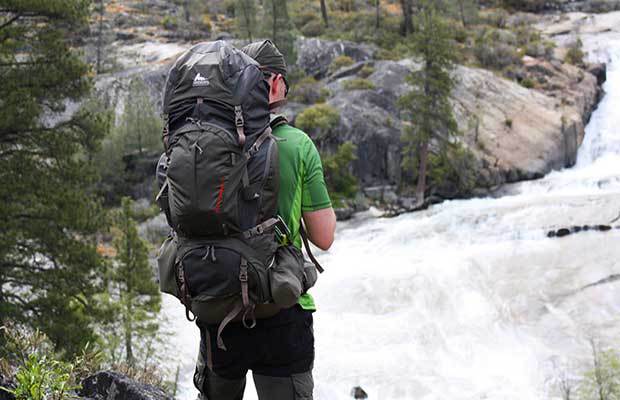
A bug out bag is designed in theory to give you everything you may need to live for at least 72 hours outside of your home and should be considered as part of any comprehensive plan for disaster or true preparedness. The tendency with bug out bags is to throw everything but the kitchen sink in them to cover every conceivable scenario or need. When this happens you have people with Bug Out Bags that weigh more than they do. Not only could this seriously slow you down at the precise time you need to be light on your feet, but having a bag that is overloaded with a lot of stuff you could live without or which, more likely, couldn’t help you at all but could get you killed.
When I started my own prepping journey, a bug out bag was high on my list of priorities. I read a lot of articles and watched a ton of YouTube videos about this subject and as you can imagine, there are as many bug out bag ideas as there are grains of sand at the beach. The bags all share a common goal in that they are supposed to keep you alive if you have to leave your house for some period of time. I think where the line gets blurred however is what your own idea of the duties of your bag are for. What do you really “need” in order to “live”? If your Bug Out Bag contents look more like what you would pack in a suitcase for a vacation, you may want to reconsider your options.
What is the purpose of a Bug Out Bag?
OK, let’s start with what a Bug Out bag is most typically used for and go from there. A 72-hour bag or kit is usually listed as the standard we as preppers should aspire to and is actually what FEMA recommends on their website. Again, this means that your bug out bag should have enough supplies to get you through 72 hours. What you put in here though should vary by person and need. If you have considered whether you will bug out or hunker down, preparing a bug out bag could be the next step in the process.
Your bag is meant to be something that you can quickly grab and run out the door. Your bug out bag should be pre-packed with the appropriate supplies and ready at a moment’s notice. Ideally, you would have practice with your bug out bag and lugging it around through various terrain and experience actually living off the supplies that you have stored in there. A bug out bag is different in scope from a Get Home Bag, but you may have some of the same types of contents in both.
At a minimum, your bug out bag should cover the 3 basic necessities you need to live; food, clothing, and shelter. After that, we look at supplies to make your life more comfortable or more secure.
Do I need a Bug Out Bag?
Great question! The answer depends on what you are going to use it for I think to a large extent. Bug Out Bags come in two main flavors or types. The first type is the bag that you plan to strap on and head out into the woods or use to hike to a remote location. This might be your retreat hidden away in the woods in a small town somewhere away from your home. This could also be for those who figure they are just going to hike deep into a national forest and live off the land until whatever crisis they are avoiding has passed.
For most people, I think a Bug Out Bag is more along the lines of a pre-packed suitcase so they can get out of dodge quickly without having to stop and pack. These types of bug out bags are very useful for people who may live in a wildfire, flooding or hurricane areas although I would hazard to guess that not many people in today’s society would be able to have a wildfire, flood or hurricane sneak upon them. If you are completely unaware of what is going on around you then you most likely won’t have any bag packed and ready to go in the first place. For the rest of us, fires, hurricanes, and floods are generally forecast and announced with more than ample time to prepare, pack and get out of the way. Are there circumstances where this is not the case? Of course, but we are talking in general terms here for the most average prepper scenario.
How can my bag get me killed?
There are two main ways I can see how not thinking logically about your Bug Out Bag can end up hurting you. The first is weight. Let’s assume that your bug out bag’s purpose of use is that you plan to walk out of town with it strapped to your back before the zombie hordes can breach the city. This will be your bedroom dresser, kitchen pantry, shelter, entertainment center and medicine cabinet all rolled into one tidy package. The average weight guidelines for a fully loaded backpack are no more than 25% of your overall body weight. For a 200 pound person (in good health) that is 50 pounds.
How many of you are used to walking with 50 pounds of weight on your back for 20 miles? How many of you think your bag would actually weigh more than 50 pounds? Do you know how much 3 gallons of water, the recommended amount you need for each person – for 3 days, weighs?
Having a bug out bag that is too heavy can cause injury very easily. Not only that, but it can wear you out much faster and make running, something you may have to do when the zombies are hungry, very difficult to do. Unless your bag is packed the right way, your center of balance will be off and you can just about forget doing any type of tactical movement with a heavy pack like this.
Am I talking about trained Navy Seals? No, I am talking about Mr. and Mrs. Joe Public who are probably just like most of us. We have jobs where we sit at a desk most days and aren’t training daily with 50-pound packs like the 10thMountain division. What about your children? Will they be able to carry all of the supplies needed on their backs as well? Probably not in all cases.
The second way I can see having a large pack could be dangerous is from the standpoint of a total collapse scenario where massive amounts of society are displaced, scared, hurting and desperate. With a large pack, you are a greater target. If there are truly desperate people and they see you with a big pack full of supplies and goodies they may be more inclined to relieve you of that extra weight. If their children are freezing or starving and you are walking around with the WalMart camping section attached in a big bright orange pack, they may decide that you need that less than they do.
How can we avoid this problem?
Pack Smarter – A bug out bag should be viewed as a life preserver in most situations, not a convenience store. When I see lists out there that have as their contents miscellaneous hardware and tools, saws and fishing gear I have to wonder what these people are going to do. Most of us, if there is really some type of disaster won’t have any place to fish at all. You aren’t going to likely be fixing a radiator hose on your car either. If you were, that is a different pack for a different purpose. Think smart about your bag and what needs to go in there. If all hell breaks loose in your town, what will you really need to survive? Will a change of clothes, something to shelter you from the elements and a means to make a fire be most of what you need? Add in some food and a little water with a backup to get filtered water elsewhere, simple first aid and you have the basics covered. Will all of this weigh significantly less than 50 pounds? It should.
There are ultra-light hiking fanatics that try to scrounge every single ounce of weight out of their packs in order to have a much lower weight pack and thus a happier hiking experience. Think about what your bag is for, how you will be using it and pack accordingly. Remember, this is just to save your life. If you have a bug out bag and you are leaving your world behind, you won’t be staying at the Ritz. Some discomfort should be anticipated so I would plan on leaving the Kindle behind.
Blend In – Packing lighter can certainly help with weight and with less weight should come less bulk. With less bulk, you should have a smaller footprint for your supplies and may be able to pack everything you need to stay alive in a smaller backpack. This will help you look like everyone else out there and not like you are hiking the Appalachian Trail. Just for the record, I am not recommending that all you need is one seriously packed survival Altoids can, but we can think about the bag that we are using to save our lives in a logical way.
Hopefully, this gives you some ideas on packing your Bug Out Bag. I would love to hear your ideas and perspectives in the comments below.
On a different note, here are some other self-sufficiency and preparedness solutions recommended for you:
The Lost Ways (The vital self-sufficiency lessons our great grand-fathers left us)
Survival MD (Knowledge to survive any medical crisis situation)
Backyard Liberty (Liberal’s hidden agenda: more than just your guns…)
Alive After the Fall (Build yourself the only unlimited water source you’ll ever need)
The Lost ways II (4 Important Forgotten Skills used by our Ancestors that can help you in any crisis)
The Patriot Privacy Kit (Secure your privacy in just 10 simple steps)






















